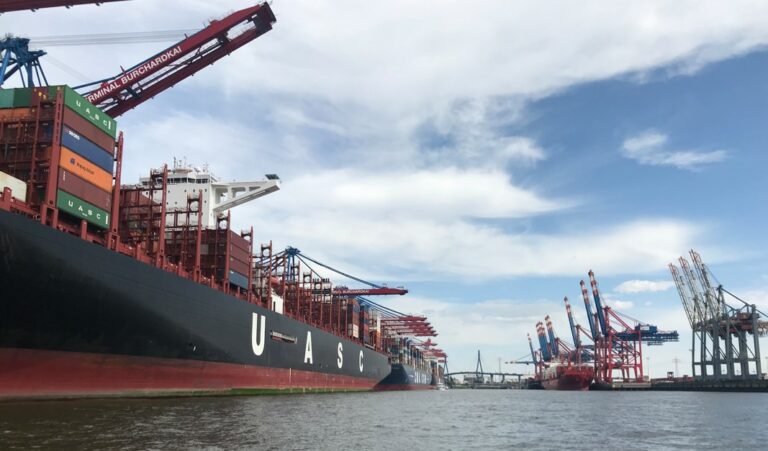
The Joint Commitment, organized by the UN High Level Champions and RMI, was signed by thirty leaders in the shipping sectors, including cargo owners, ship operators, ports, bunkering companies, and equipment manufacturers, at COP28 on December 6.
The Commitment includes important targets for fuel use, fleet development, and port infrastructure needed to get the green hydrogen industry to scale.
Achieving targets set out in the International Maritime Organization (IMO)’s 2023 Strategy and meeting legally binding international regulations that will enter into force in 2027 requires large-scale and rapid growth in the use of zero-emission fuels such as green hydrogen-derived fuels like ammonia and methanol.
Thus, green hydrogen producers agreed to produce 11 million tons of low-emissions fuel for use by the shipping sector by 2030 as part of the Joint Commitment. In the long term, a decarbonized global shipping sector is expected to become one of the largest demand sources for green hydrogen, projected to account for approximately 15% of total demand by 2050.
Ports and ports’ enablers added their support for the Call to Action, committing to invest in infrastructure and safety projects to support the re-fueling of ships with green hydrogen and its derivatives. Equipment manufacturers also joined as signatories, vowing to support research and development efforts to advance green hydrogen-based fuel deployment in the maritime sector.
“Regardless of what other future fuels eventually come into play, green hydrogen and green fuels derived from it will undoubtedly play a major role in all scenarios. At MAN Energy Solutions, we strongly believe that shipping is the ideal enabler for a hydrogen ramp-up, consuming as it does around 300 million tons of conventional fuels annually,” said Uwe Lauber, CEO of MAN Energy Solutions.
“Currently, our subsidiary – H-TEC SYSTEMS – is building a manufacturing facility for PEM electrolysis stacks for green hydrogen, which will add to the necessary scaling and market for zero-emission fuels. We are happy to add our voice to the growing alliance pushing for marine decarbonization.”
Signatories called on governments to follow suit and support private sector collaboration with ambitious fuel standards and clean fuel mandates. So far, 41 governments have outlined national hydrogen strategies, many of which specifically address the shipping sector.
Earlier at COP28, the Chief Executive Officers (CEOs) of leading global shipping lines issued a joint declaration calling for an end date for fossil-only powered newbuilds and urging the International Maritime Organization (IMO) to create the regulatory conditions to accelerate the transition to green fuels.